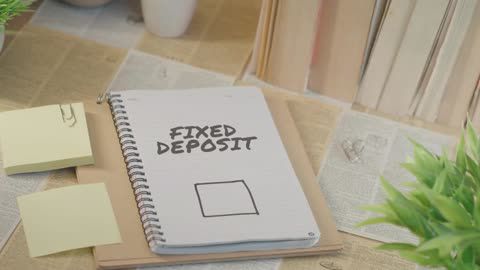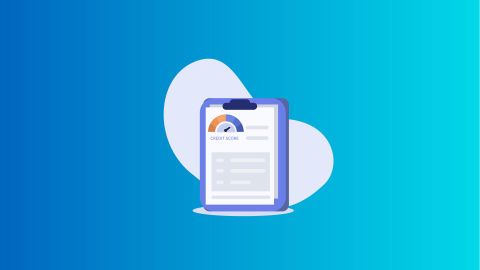Your credit score is a number that falls between 300 and 900, and it helps give lenders a sense of your history of debt accumulation and repayment. This score can impact the loan amount that lenders are willing to offer you. Besides this, it also affects the collateral they demand and, in some cases, the interest rate for repayment. The higher your credit score, the easier it will be to avail of large loans at nominal interest rates.
Here’s a look at how outstanding debt affects your credit score and how to avoid some common mistakes relating to it.
Unpaid debt lowers your score
About 30% of your credit score depends on the amount of debt you owe when the score is taken. Large outstanding debts will reflect on your credit report and bring down your credit score, which will subsequently impact your eligibility for an instant personal loan or the personal loan interest rate you are offered.
Late EMI payment reduces your score
If you have a history of defaulting on loans or have late EMI payments, this will reflect poorly on your credit score. You must make all EMI payments on time. A good way of making sure you’ve set aside the appropriate sum for EMI repayment each month is by using a Personal Loan EMI Calculator to pre-plan your monthly budget. If you have any outstanding debt, pay it off as soon as possible since you can only work towards repairing your credit score after debt settlement.
High credit utilisation is a bad sign
One of the most critical factors that affect your credit score is your credit utilisation. Credit utilisation is the ratio of your credit card balance to your credit limit. A high credit utilisation indicates that a large portion of your monthly income is going towards credit card payments and subsequently that you’re more likely to default on your other loan repayments. To keep your credit utilisation low, you should make your credit card repayments regularly and on time. In addition, be mindful of not making too many large purchases on your credit card. If your credit utilisation is over 30%, you should consider not using your credit cards until you’ve paid off the outstanding debt.
Additional read: 4 ways to consolidate your debt
Having no debt history is no good
Finally, a credit report that shows no debt isn’t going to do you any favours. If you have no history of borrowing money, a lender cannot see for themselves how efficient you are at repaying your loans or how well-balanced your financial assets are. Showing a diverse history of well-managed and efficiently cleared debt, or even outstanding debt that is on its way to being paid, is better than absolutely no previous debt at all.
A low debt-to-income ratio boosts your score
Your debt-to-income ratio is the ratio of outstanding debt to your monthly income. Simply put, it tells lenders how much money you have coming in each month and how much is going out towards debt repayments. It is essential to show that your income will cover the cost of all your debt repayments when applying for a loan.
The higher your debt-to-income ratio, the more likely it is that you will default on your repayments. Make sure you are not getting yourself into more debts than you can justifiably repay. Either work towards increasing your income, if you can, or pay off your outstanding debts before applying for a loan.
Additional Read: 5 things to know about loans for medical emergency in India
Having different types of debt increases your score
A variety of well-managed debt proves to lenders that you are a responsible borrower and have proven, in the past, that you are capable of efficient loan repayment. Diversity on a credit report proves your financial capabilities, much like a diverse resume may boost your eligibility for a job. A lender cannot rely on a high income and low credit card balance alone to make a decision, but evidence of past success may nudge them in the right direction.
If multiple EMIs are becoming challenging to manage and, as a result, your credit score is going down, you can opt for a personal loan for debt consolidation. A debt consolidation loan is a good way of efficiently managing different types of debt by making only one EMI payment each month.
Check your eligibility for the Bajaj Finserv Personal Loan for debt consolidation using their online calculator. Using it, you can combine your outstanding debt into one affordable loan of up to Rs. 55 lakh. You can repay this loan in a tenor of up to 96 months. For a shorter processing time, you can also avail of the pre-approved offer. Check your offer today by providing your name and contact details.
DISCLAIMER:
While care is taken to update the information, products, and services included in or available on our website and related platforms/websites, there may be inadvertent inaccuracies or typographical errors or delays in updating the information. The material contained in this site, and on associated web pages, is for reference and general information purpose and the details mentioned in the respective product/service document shall prevail in case of any inconsistency. Subscribers and users should seek professional advice before acting on the basis of the information contained herein. Please take an informed decision with respect to any product or service after going through the relevant product/service document and applicable terms and conditions. In case any inconsistencies observed, please click on reach us.
*Terms and conditions apply








